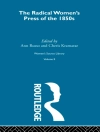In ‘Sir Thomas Browne and his ‘Religio Medici’: An Appreciation, ‘ Alexander Whyte delves into the intricate details of Thomas Browne’s philosophical and theological work ‘Religio Medici.’ Whyte carefully examines Browne’s unique literary style, blending scientific inquiry with spiritual introspection, set against the backdrop of 17th-century English literature. The book meticulously analyzes Browne’s exploration of faith, reason, and doubt, showcasing his profound influence on subsequent writers. Whyte’s scholarly approach sheds new light on Browne’s timeless masterpiece, offering readers a deeper understanding of its significance and lasting legacy. Alexander Whyte’s expertise in religious and literary studies illuminates the motivations behind Browne’s ‘Religio Medici, ‘ providing readers with a comprehensive appreciation of one of the most enduring works of English literature. For those interested in exploring the intersection of faith and reason in the context of 17th-century England, ‘Sir Thomas Browne and his ‘Religio Medici’: An Appreciation’ is a must-read for its insightful analysis and scholarly insights.
Giới thiệu về tác giả
Alexander Whyte (1836-1921) is remembered for his deep spirituality and engaging homiletic style, which left an indelible mark on Scottish pulpit oratory at the turn of the 20th century. Born in Kirriemuir, Scotland, Whyte’s academic journey led him to the University of Aberdeen and then to the New College, Edinburgh. He became one of the most prominent ministers of the Free Church of Scotland, serving at St. John’s Free Church in Edinburgh for many years. Whyte distinguished himself not only as a preacher but also as an author, with a distinctive literary style that combined intellectual depth with a passionate exploration of Christian faith and character. His scholarship often intertwined with his theological expositions as evidenced in his work ‘Sir Thomas Browne and his ‘Religio Medici’: An Appreciation.’ In this analysis, Whyte elucidates on Browne’s spiritual discourse, providing insights that reflect his own meditative and often introspective approach to religion. Whyte’s affable style and existential musings about faith, grace, and the human condition, echo through his writings, leaving a lasting legacy in both religious and literary domains.












